| The 1920s and 1930s
In 1924 came our first involvement with tractors. J. B. Carr
of Tettenhall operated steam engines for dredging pools. He
used a Paragon scraper, constructed by Onions of Thompson
Avenue, using our piano steel wire rope. He was also a
director of Tractor Traders Limited, and he
suggested that we should supply machined items such as the top and lower
rollers for Holt tractors. And this we started to do. |
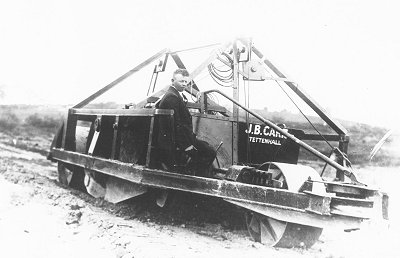 |
Other opportunities were taken as they were spotted. For example, in
1926 smoke abatement legislation lead to many collieries scrapping
thousands of burning bars from Crossthwaite Furnaces which produced
dense smoke from low grade fuel. My Father re-designed the boiler
systems so that they emitted only smokeless fumes (and used fewer
furnace bars), cleaned and plumbago-ed the furnace bars, and
recommissioned many furnaces. |
| In 1927 it was time for my Father to act as what would now be called a
company doctor. His brother-in-law, Fred Blagg, had a builders merchants
business on Dudley Road, which was experiencing difficulties. My Father
took over the business and moved the whole operation to Chillington
Fields. He became one of the directors and Fred was the other. This
company, F. Blagg & Company (Wolverhampton) Limited, then ran successfully
until 1996 when it was one of many companies associated with the
building industry to close. |
| In 1931 AJS went into voluntary liquidation. My
Father bought some £40,000 of commercial vehicle spares for £250 and
moved them to Chillington Fields. Sales far exceeded the cost and what
few items were left (mostly rear axles) were scrapped by me in 1939 to
assist the Government with their call for scrap metal for the war
effort. |
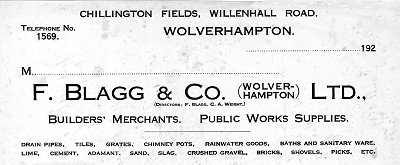 |
| On 21st April, 1931 my Father paid £1,400 for 20 acres of
land off Neachells Lane. This consisted of Slink Meadow (16 acres), Far
Barn Croft (2 acres) and the Coppice (2 acres). On this land he started
a brick making business. The bricks were made out of the Tocci dirt that
was on the site, fired in 14 kilns which were fired by coal mined on the
site. He formed a company called Whiwait Brick Company Limited, choosing that
spelling rather than Whiweight because it was short enough to fit into
the frog recess of the brick. His steam pressed common bricks were made
9" x 4 ¼", whereas the standard brick was 9" x 4". A building once
started with Whiwait bricks had to be completed with the same width
bricks. |
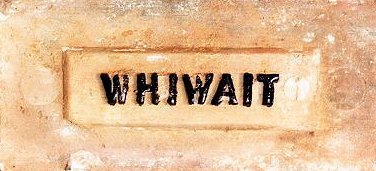 |
Brick production continued for approximately 15 years, then the 20
acres were sold off in small lots.
The first three acres were sold on 28th
March, 1950 for £2,500 to William Barnsley Limited, Globe Works, Highfield,
Bilston and since then many firms have moved onto the site.
|
| In 1996 the following were in occupation: R.M.S. Transport, N. T. Laidlaw, Budget
Car Sales, Jose Glass, Pendeford Metal Spinning, Serck Marston,
Greenhous, Stokes and Sons, Wasteaway. |
| This garage, at Richmond road, was built out of
Whiwait bricks. |
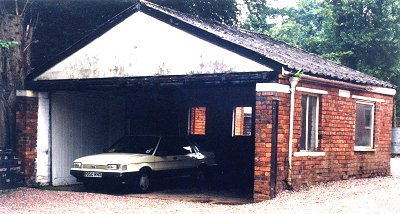 |
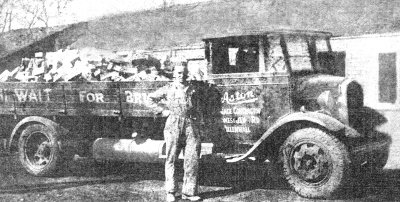 |
This old and faded newspaper photo shows the first
(and then the only lorry) owned by Astons, whose very first contract was
for the haulage of Whiwait bricks. |
 |
|
 |
|
 |
Return to
The Early Years |
|
Return to
the index |
|
Proceed to
Tractor Spares |
|